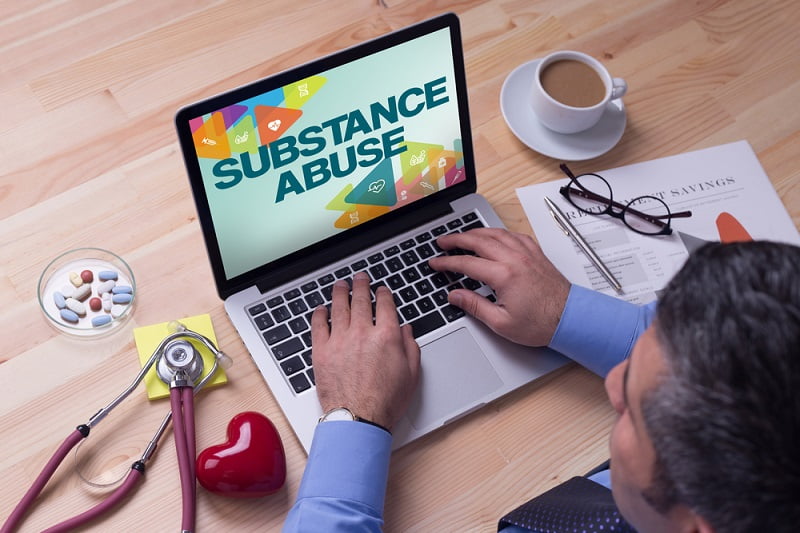It is a well-documented fact that alcohol and drug abuse have destroyed millions of families. Prolonged abuse of drugs and/or alcohol not only deteriorates a person’s physical and mental well-being, but it puts his whole family’s happiness at the brink.
The manifestation of the damages of substance abuse on families is clearly seen by the daily emotional trauma and humiliation they have to go through. The truth is every single individual in an addict’s family suffers in one way or the other because addiction affects family’s finances, physical health and psychological well-being. In general, from a psychological point of view, be it any household, addiction breeds negativity that causes tension, miscommunication and frequent arguments among family members, thereby considerably raising resentment, anger and also their stress levels. Thus, all these unfortunate repercussions of addiction create an altered and damaged family dynamics.
Impacts of drug addiction on varied family structures
The modern-day society has produced complex family structures, for example, nuclear families, single-parent families, step families, foster families, multi generational families, and even live-in relationships; substance abuse, therefore, has distinct effects on them. In particular, the physical and emotional effects of alcoholism are not limited to the addict persons alone; they devastate their entire families, too. In nuclear families, parents of small children tend to compensate for deficiencies that their addict spouses have developed as a consequence of abuse.
Single-parent families are worse affected as children are less likely to immune themselves from the reality of their parent’s addiction. This is simply because they have no option but to endure the status quo. As a consequence, such children behave in a manner that is not age-appropriate; or worse still, the parent addiction may likely to pass down to children.
Safety becomes a huge concern, especially in single-parent families since addict parents are not focused or aware enough to keep their children from unfortunate incidents. They are not attuned enough to take action when their children need them desperately. Therefore, the most devastating effects of substance abuse are always on children. When everything is compromised during their growing years due to substance abuse, sadly their self-confidence, social development and overall well-being are seriously challenged.
When it comes to step-families, substance abuse impedes their integration and stability. In such type of family settings, the feelings of abandonment, anxiety and embarrassment are so heightened that family members may wish to ignore or cut ties with the person abusing drugs and/or alcohol. It is not surprising in certain families that the members may feel the need to get legal protection from the person abusing substances. In intergenerational families, where role modeling is important, substance abuse can lead to mistrust and hence damage the relationships between generations.
Financial instability is another severe harm brought upon a family due to drug or alcohol abuse. Instead of earning for their families, addicted individuals are often seen to steal money or valuables from their houses and pawn them in an attempt to continue their substance abuse. This is an unsavory situation that no family would like to face.
Ways to address substance abuse and how to get rid of it
Oftentimes people who are addicted don’t realize the gravity of the situation because they just don’t want to believe their activities are wrecking havoc in their families. These individuals must evaluate themselves and the consequences of their habits on their families. This issue must be addressed head-on. Keeping in mind, the physical, mental and emotional effects of substance abuse, overcoming it without professional assistance is very difficult. Today, a variety of drug abuse treatment programs exist that can help addicted individuals as well as their families.
Family Therapy
To begin with, family therapy can go a long way in treating substance abuse. By definition, family therapy is a form of psychotherapy that seeks to reduce distress and conflict by improving the systems of interactions between family members. So, in cases of drug/alcohol abuse, families’ strengths and resources can help find ways to live without alcohol or drug. Family members will better able to support in dealing with the impacts of detoxification – the process of cleansing an individual’s body from addiction. That is the reason family therapy is often referred to as a “strengths based treatment.”
Behavioral Counseling
Behavioral therapies are aimed to engage people in drug abuse treatment by providing them incentives for remaining abstinent. The therapy modifies their attitude and behaviors related to drug abuse, while increasing their life skills. It also helps substance abusers identify the root causes of their drug use, repair their relationships, and learn healthier coping skills. In a typical cognitive behavioral therapy (CBT), a therapist acts as a coach and a teammate to assess and understand thoughts, feelings and behaviors of a patient that occur following the use. This helps in effectively addressing the addiction.
Residential Treatment
Residential treatment involves living at a facility and getting away from work, school, family, friends, and addiction triggers while undergoing intensive treatment. It can last from a few days to several months. One big advantage of residential drug treatment is its ability to incorporate some or all of the different treatment components in a single setting. It also provides a tight-knit and supportive environment.
Person-Centered Therapy
The person-centered therapy believes that all people have an innate goodness in them that wants to emerge. This style of treatment enables the addicted individuals to resolve their own problems as they are given supportive environments, unconditional positive regards, acceptance, and understanding by the therapist.
Motivational Interviewing
The aim of motivational interviewing is to have a client find his own drive and desire to make appropriated choices rather than being forced into it by threats of legal recourse or guilt. The success of this therapy is accomplished through – collaboration, evocation and autonomy. Motivational interviewing has been successful in a wide number of settings including mental health, substance abuse, gambling, obesity and other addiction-related issues.
Conclusion
Substance abuse without any doubt is a menace of the society. Immediate families of drug/alcohol abusers are the biggest sufferers. Moreover, in its entirety, substance abuse goes beyond families. Neighbors, friends and co-workers also experience its effects because a person who is an addict often seems to be unreliable. This menace has to be curbed as earlier as possible.










_9_2-250x220.jpg)